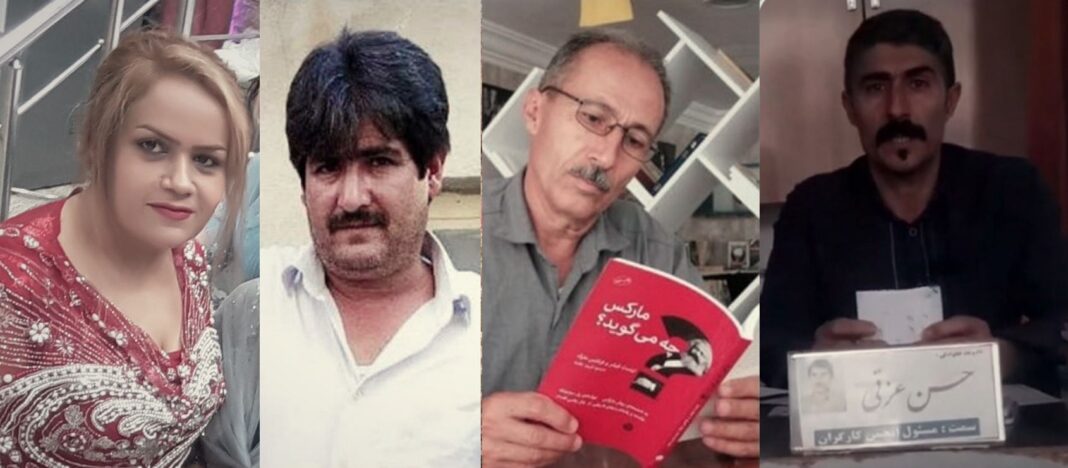The Intelligence Organisation of the Islamic Revolutionary Guard Corps (IRGC) arrested seven labor and women’s rights Kurd activists in Baneh, Kurdistan province, on 26 April.
The names of these activists are Nishtiman Rahmati, Parvin Abdollahpour, Hassan Ezzati, Saeid Mohammadi, Omar Soleimani, Fateh Majidi, and Afshin Rahimi.
Reportedly, the IRGC forces also raided the homes of these civilians and confiscated some of their personal belongings.
Nishtiman Rahmati was released after several hours while the rest of the activists were transferred to the Shahramfar Detention Center of the Intelligence Organisation of the IRGC in Sanandaj, Kurdistan province.
In the past few years, security forces summoned and interrogated the labor and women’s rights activists Parvin Abdollahpour and Nishtman Rahmati, the member of the board of directors of the Baneh Construction Workers’ Union Hassan Ezzati, and labor activists and former political prisoners Saeid Mohammadi and Omar Soleimani, on several occasions.
Iran has roughly twelve million Kurds making up approximately 15 percent of the population. The majority of Kurds live in Kurdistan, located in the northwestern area of Iran near the border of Iraq.
Around 10,000 Kurds have been reportedly killed or executed and roughly 20,000 displaced following the Islamic revolution of Iran.
After the establishment of the Islamic Republic in 1979, Iranian authorities have been very effective in suppressing the Kurds and silencing any dissent or opposition.
First of all, due to their military capabilities, hard power superiority, and harsh punishments such as executions, Iranian leaders have been successful in cracking down on Kurdish democratic aspirations, human rights activists, political activists, and opposition groups.
Secondly, the Iranian government has neglected the Kurdistan region thus preventing the majority of the Kurdish population from prospering financially. Third, from a cultural, religious, and ethnic point of view, the Kurdish minority has long suffered discrimination- being viewed with suspicion, and considered outsiders or foreign conspirators.

